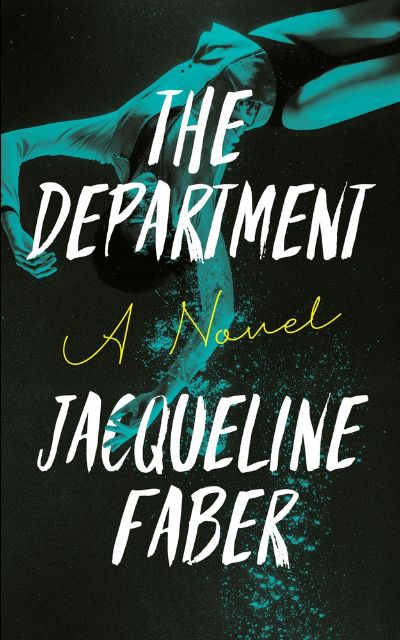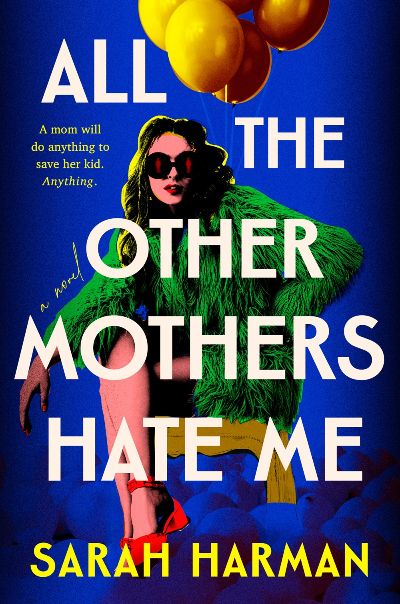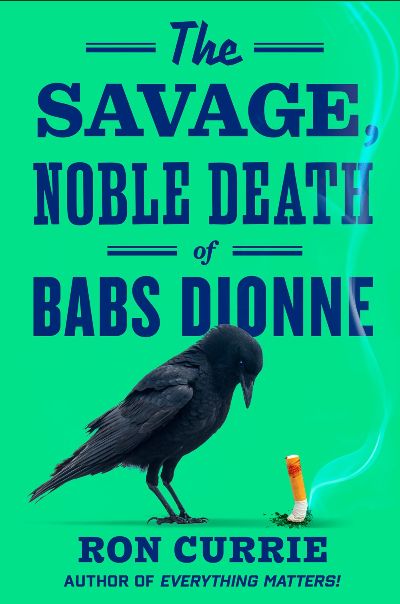As a single, 47-year-old librarian in Minnesota, Hana Babic leads a quiet life. Until one day when a police detective stops by the library to inform her that her best, and really only friend, Amina, has been murdered. Hana and Amina share a history that extends back to the Bosnian War, when Hana witnessed the rape and murder of her entire family by Serbian soldiers, murders Hana swore to avenge. Joining Bosnian militia fighters, Hana transformed herself into a fierce warrior who became known as the deadly Night Mora—a legend among Serbian troops. But with a price on her head, she eventually poses too much of a risk to her fellow soldiers, and is sent to the Bosnian community in St. Paul to reinvent herself. Amina’s murder decades later does more than just reawaken Hana’s horrible memories. It convinces her that she is being hunted, and to survive, she must reawaken the Night Mora, drawing Amina’s murderer into a trap. Written in chapters that alternate between Bosnia in the 1990s and present day Minnesota, the book eventually merges into one astonishingly powerful narrative that is nothing less than genius. Like Eskens brilliant The Life We Bury, this would make an excellent choice for a book discussion, especially since many participants will know nothing about the Bosnian War. Eskens includes scenes of sexual violence and other war crimes.
Thrillers
“Let me tell you about the very rich,” wrote F. Scott Fitzgerald. “They are different from you and me.” And Kathy Hays’s Saltwater does a spectacular job of illustrating not just how they are different, but why. Back in 1992, Sarah Lingate—a Lingate by marriage, not blood—took a tumble down the cliffs behind the family’s villa in Capri during their annual vacation. She left behind Helen, her three-year-old daughter; Richard, her madly controlling husband; and other relatives and hangers-on. Was Sarah pushed or did she jump? Pushed is what most of the island thought, but with their vast resources, the old-money Lingates were able to insure that her death was ruled an accident. Thirty years later the Lingates, like so many swallows, are making their annual pilgrimage, as though to prove to the world that they are beyond public opinion. But as one disturbing incident after another occurs—who sent them the necklace Sarah wore to her death?—cracks and fissures begin to show. Written from three points-of-view: that of Helen, who desperately wants to escape from the family; Sarah, speaking right before her death; and Lorna, a personnel assistant who has disappeared, this novel creates a world and then takes it apart, in the most shocking of ways. For readers who enjoy contemplative crime dramas.
The Jansen family is newly arrived in LA from Melbourne, Australia. Janus, the father of the family, is sure the screenplay of his successful novel will be their fortune. Things take a very sinister turn when daughter Liv wakes with a hangover and bruises, and her parents seem furious with her. Her bedroom is padlocked shut—it’s the law, Janus and wife Kay say, because there’s a mold issue. Son Casper suspects that there’s something much worse afoot; his parents won’t talk to each other and barely seem aware of him, and that locked room is suspicious. Liv herself can’t remember anything but starts to catch on that there’s a problem when her friend who was out with her on the mysterious night in question won’t return texts. What happened? That’s carefully revealed in a tense psychological thriller that masterfully examines love and fear from every angle. The fully fleshed out teenage characters make this a solid YA crossunder. Get it on your TBR list!
Novelist Zoe Weiss is stuck. Her first novel was successful enough to land her a deal for another, which is now a year overdue, with no ideas on the horizon, let alone drafts to pass along to her increasingly irate agent. If she doesn’t come up with something, she’ll have to pay back the $250,000 advance, and working at a Los Angeles florist, that doesn’t seem possible. When she drops an arrangement at a flower delivery and her ex-fling, Zach, happens to be there to help, everything seems suddenly better. Maybe he can help her pick up the pieces of her life, too? Zach’s a famous actor now, and his glamorous life could be the makings of a novel. Soon the two are appearing in the tabloids as an item and the writer’s block is as missing as Zoe’s bikini top in that one swimming pool photo. Only one issue: Zoe signed an NDA, so writing about this is forbidden, but that’s the least of her worries when creepy happenings start—a real heart is left on the window of her car—and she thinks someone is following her. Oops, Zach has a stalker, one who’s not too happy about his new girlfriend. Zoe’s problems and her florist-by-day, glam-girl-by-night bizarro life are realistic and absorbing, and the plot equally so. Twists and a totally unexpected epilogue are the cherry on top.
Joseph Finder combines various themes from his previous novels and creates his best book to date. Six years ago, Paul Brightman worked on Wall Street and met a Russian American woman named Tatyana, who quickly became an infatuation. After they court and fall in love, she introduces him to her father, a Russian oligarch who soon sweeps Paul into his financial world. Tatyana and Paul marry, and everything seems to be going smoothly until it all blows up. At present, Paul lives in a small town in New Hampshire under the name Grant Anderson. He spends his days working on boat repair and helping with a boat charter that takes clients fishing. One morning, as he takes the boat out with a tourist, the man turns to Grant and says, “I know who you are, Paul.” Finder perfectly blends Grant’s storyline with that of a terrified Paul trying to survive. Nothing is predictable here, and the payoff is glorious. The Oligarch’s Daughter will be remembered as a classic years from now and should be used as a textbook to teach writers how to craft a perfect thriller. Is it too early to say this is not only the best book of the year but the best book of the decade?
Byrne’s latest starts with a bang and never lets up for a second. Dez Limerick has unique skills and training as a former special ops operative. His talent as a gatekeeper ensures the client has access to get in and out of a sticky situation. Now retired, he’s thrilled to get an offer to play for one of his idols in a concert. He arrives at the venue only to learn that the entire mall complex has been taken over by terrorists. Working behind the scenes to save everyone, Dez, along with a thief named Cat, starts to realize there is more going on than it initially appears. Do these men have ties to a higher-up in the Russian government? This fun take on Die Hard could easily be the entire story, but it’s merely the beginning. Someone with a personal vendetta is hunting Dez, and they won’t rest until he’s in the ground. Byrne has created an unconventional hero with unorthodox methods and a darn fun attitude. The series gets better and better with each installment, and readers will be eager to see what’s in store for Dez next.
Get ready to face big questions in Faber’s novel, one that uses a southern college’s philosophy department as a magnifying glass on relationships between haves and have nots; having power and not, that is. Decidedly a have not in this equation is Neil Weber, a professor whose chances at tenure are fading, a situation he’s desperate to change but too depressed to take real action over. Instead, he becomes enmeshed—his friends and the police say obsessed—with the disappearance of student Lucia Vanotti. This young woman, whose narration alternates with Neil’s, is technically a have not, the daughter of Italian immigrants who own a local restaurant. But a chance encounter has Neil placing her on a pedestal and desperate to find her. As he digs deeper into the student’s life and related goings on in the town, and before-disappearance Lucia brings us further into her trauma-ridden life, readers will ask, can love ever be enough? Who is a savior acting for? Humming in the background of the drama is the perplexing question of what happened to Lucia, the answer to which brings delicious twists. An absorbing debut.
Succession meets Canyon Ranch in this terrifying family reunion. The deeply complex and über-rich Agarwals family (parents, three adult kids, a daughter-in-law), with homes scattered about the map, have gathered together on an island off Scotland. The estate is owned by Myra, the oldest daughter. She’s putting the finishing touches on the conversion of the mansion into a luxe resort and wellness center, and losing buckets of money in the process. But for now it’s just the Agarwals’ playground. And there’s plenty to celebrate, including the parents’ fortieth anniversary (Shalini, the mother, is very needy) and the announcement by patriarch Raj of his long-awaited succession plan (he’s pretty arrogant). Narrated by both Myra and Zoe, the middle-class daughter-in-law who is a fake influencer, everyone’s dirty laundry gets exposed as they wait to see who gets the biggest cut of the pie. With the addition of some angry Scots—this is their land!—and the arrival of former family members, you have a recipe for murder that is certain to shock most readers. Here’s a clue: if the Agarwals motto is “family first,” where does that leave everyone else?
She ain’t lying! All the moms do hate her. Because Florence Grimes is quite the unrepentant good-time girl who gets all the side-eye from the moms and smirks from the dads. She has a collection of lovers that’s like a deck of cards. Her get-ups are designed to provoke, at the very least. And her last, and only, job—years ago—was in a girl band that ended in humiliation. The one ray of light is her ten-year-old son, Dylan, who is a radical environmentalist and attends a fancy London all-boys school. But when Alfie Risby, Dylan’s bully and heir to a frozen-food empire, suddenly disappears during a class trip, and Dylan is the prime suspect, Flo starts to wake up and realizes that she is the only one that can save Dylan. Rich in satire, hugely funny, with a running wink-wink to the reader, this novel is pure comedic gold.
Men do live in Waterville, Maine. They even live in Petit Canada, the staunchly French neighborhood where “people [have] more trouble than money.” But the town’s men seem mostly beside the point. The women, on the other hand, use “visiting”—sitting over coffee—as time to “organize, decide neighborhood business, and leverage collective will to solve problems.” Chief at both causing and solving those problems is self-proclaimed “goddamn cast-iron bitch” Babs Dionne, who runs the town and is feared by all, but also fiercely loved. A teenage Babs commits a crime as the book opens, one that follows her over the decades of the story, corroding her ability to show love to the children she adores. One of them, Sis, is now missing and the family suspects her drunken husband is to blame. Babs and her other daughter, Lori, who’s using drugs to push down the PTSD she gained in Afghanistan, set out separately to find the woman, Lori desperate to spare Babs from the pain of likely tragedy. At the same time, a character known as “The Man” is not so gently working to convince Babs that the underworld business she’s controlled for decades is his now. We’ll see about that. Currie’s tale and his powerful writing are reminiscent of small-town sagas by Richard Russo, and are peopled by the same kinds of won’t-let-you-go characters. An immersive book to be savored.










